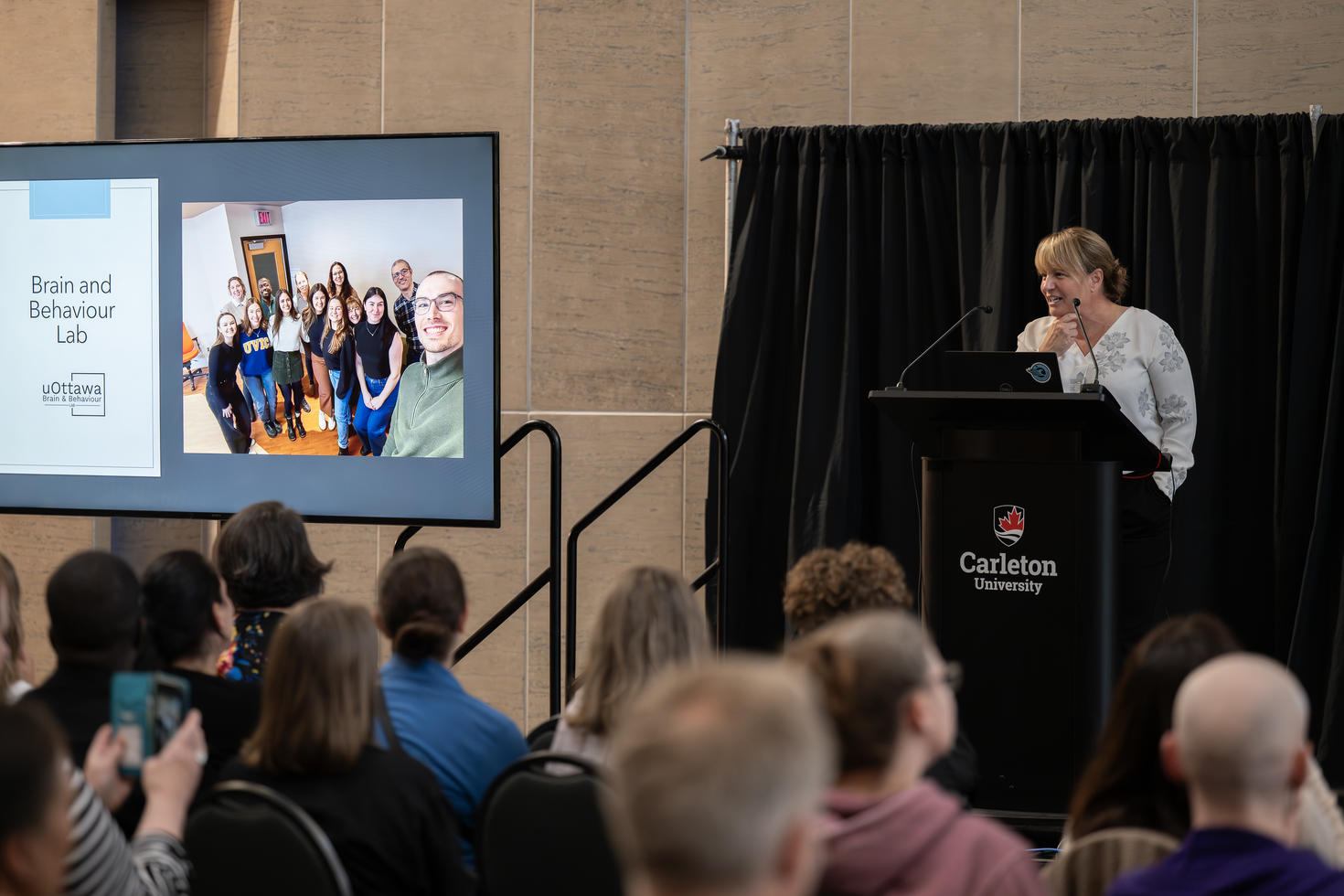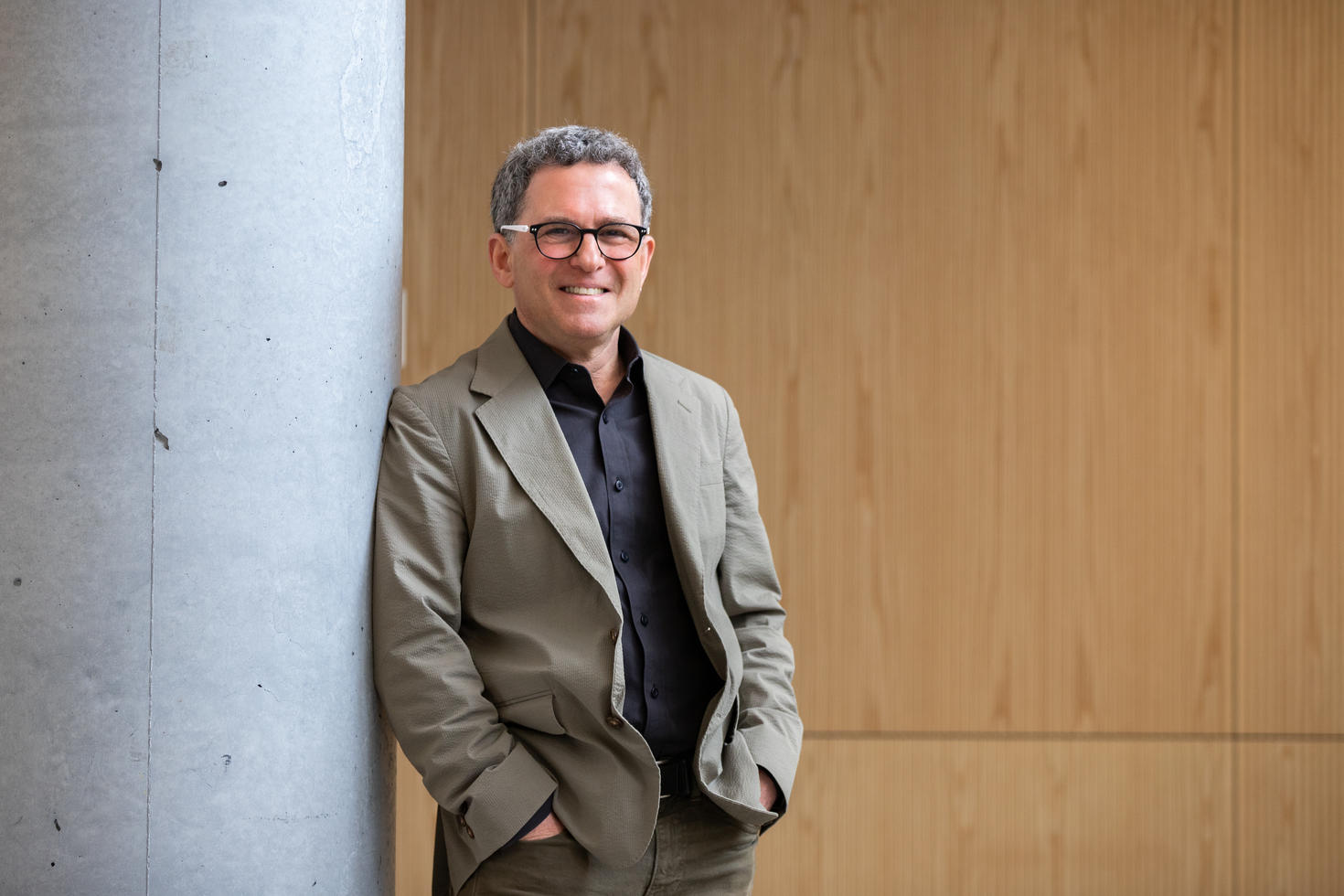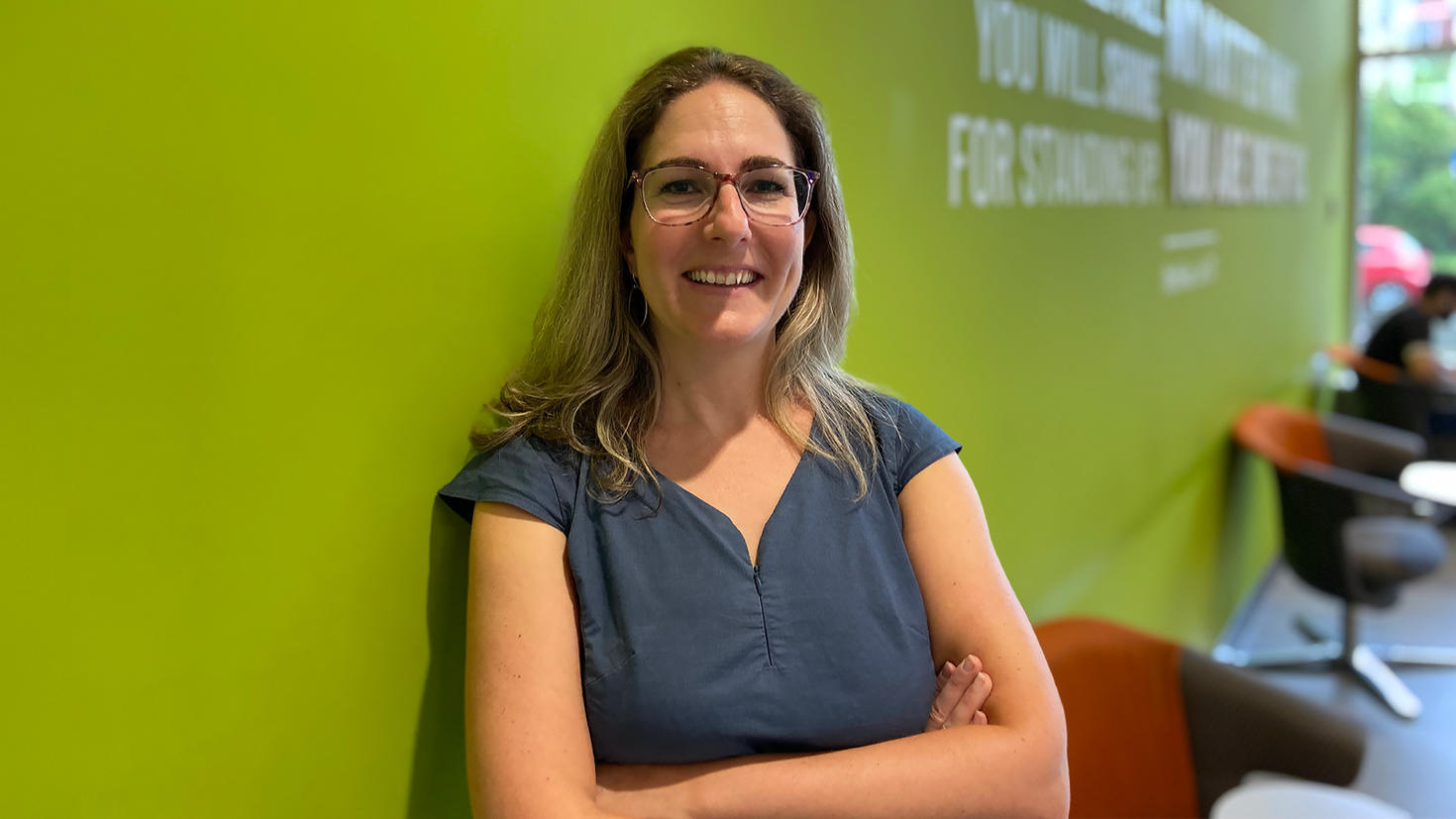When Tracy Vaillancourt stood in front of an atrium full of students, academic colleagues and family members to accept her Pickering Award and deliver the 2025 Pickering Public Lecture, she began with a simple question: Why do this work?
“To make the lives of children in Canada and around the world better,” she said.
The Pickering Award began in 2010 to honour Ottawa philanthropist C. E. Pickering (1881–1983), who made generous donations to the Carleton University Department of Psychology in support of research on early childhood well-being. The annual distinction is given to a Canadian scholar who has “made outstanding contributions to developmental psychology as demonstrated by excellence in leadership, mentorship, and scholarship ... over a sustained period of time,” in the words of the Pickering Centre for Research in Human Development. The Centre hosted the award ceremony on September 25 at Carleton University, with Vaillancourt as the 12th researcher to receive the prize since its inception.
A leader and mentor
Vaillancourt is best known for her research on aggression, specifically the long-term effects of bullying and best practices for prevention and intervention. She holds the Tier 1 Canada Research Chair in Youth Mental Health and Violence Prevention. She’s also a Royal Society of Canada (RSC) fellow who chaired the RSC Task Force on COVID-19. And as founder and director of uOttawa’s Brain and Behaviour Lab, she’s an international thought leader in child and youth mental health, and the long-term neurobiological effects of bullying.
With more than 300 publications and a similar tally of invited talks, conference presentations, media interviews, and podcast appearances, the scope of her public scholarship is wide and underscores the influence of her interdisciplinary research. Her forthcoming book Mean, to be published in 2026, will bring her research to broader audiences by delving into the gendered dynamics of aggression and social competition.
As much as the Pickering Award committee members were impressed with Vaillancourt’s scholarly accomplishments, they were equally moved by her dedication to mentoring the next generation of researchers and mental health professionals. More than 50 of her former students have gone on to become doctors, psychologists, professors, public servants and leaders in private-sector research.
Bullying: The antithesis of belonging
Vaillancourt’s presentation brought listeners “into the [scientific] weeds” of the neurobiology of peer victimization and its long-term implications.
“The thing about mental health issues is that they begin in childhood, and they become entrenched,” she said.
“Mental health problems in adulthood are the leading cause of disability worldwide. Now we have adults who have mental health difficulties who are parenting the next generation of kids. It’s challenging to raise a toddler when you’re depressed, when you lack motivation, when you’re sad, and when you feel hopeless.”
The causes of poor mental health are varied and complex, but bullying stands out as a significant factor that’s detrimental to well-being. “This is what I’ve spent my time on — reducing bullying victimization to ameliorate the mental health of children and youth,” said Vaillancourt.
She showed findings about those who were bullied as children and “who were still more likely to be anxious and suicidal than those who hadn’t been bullied in childhood. They’re 50 years old, and they still can't get over it,” she said.
“It also affects their individual and societal economic prosperity, even four decades after exposure,” she explained. “Bullying affects kids immediately and in the long term, and it has collateral damage for future generations.”
“So why such a profound negative reaction to being bullied?” Vaillancourt asked. “Because bullying interferes with the person’s fundamental need to belong. We know from countless studies over 70 years that social ties are not just a luxury — they’re actually essential for optimal development. There’s an evolutionary basis to belonging. Belonging means that you’re protected.”

“Ultimately, this work is about belonging — helping children feel seen, valued and connected. When we do that, we not only prevent suffering — we create the conditions for every child to thrive.”
Tracy Vaillancourt
— Professor and Canada Research Chair in Youth Mental Health and Violence Prevention
“Ultimately,” Vaillancourt said, “this work is about belonging — helping children feel seen, valued and connected. When we do that, we not only prevent suffering — we create the conditions for every child to thrive.”
“I’m honoured to have been selected for the Pickering Award. I particularly appreciate that this award recognizes the importance of mentorship,” she added.
“Creating environments where students can flourish and feel supported to take risks is essential to fostering the next generation of scholars dedicated to improving the lives of children and youth worldwide.”
About Tracy Vaillancourt
Professor Tracy Vaillancourt holds the Canada Research Chair in School-Based Mental Health and Violence Prevention. She is a full professor in the Faculty of Education, a cross-appointed full professor in Counselling Psychology and the School of Psychology, and a Senior Fellow at the Centre for International Governance (CIGI). She co-leads the Health and Peer Relations Study (HPRS). Professor Vaillancourt's research examines the links between bullying and mental health, with a particular focus on social neuroscience. Her work is funded by the Canadian Institutes of Health Research, the Social Sciences and Humanities Council of Canada, and the Ontario Mental Health Foundation. She is a fellow of the Royal Society of Canada and a member of Public Safety Canada's National Expert Committee on Countering Radicalization to Violence.


